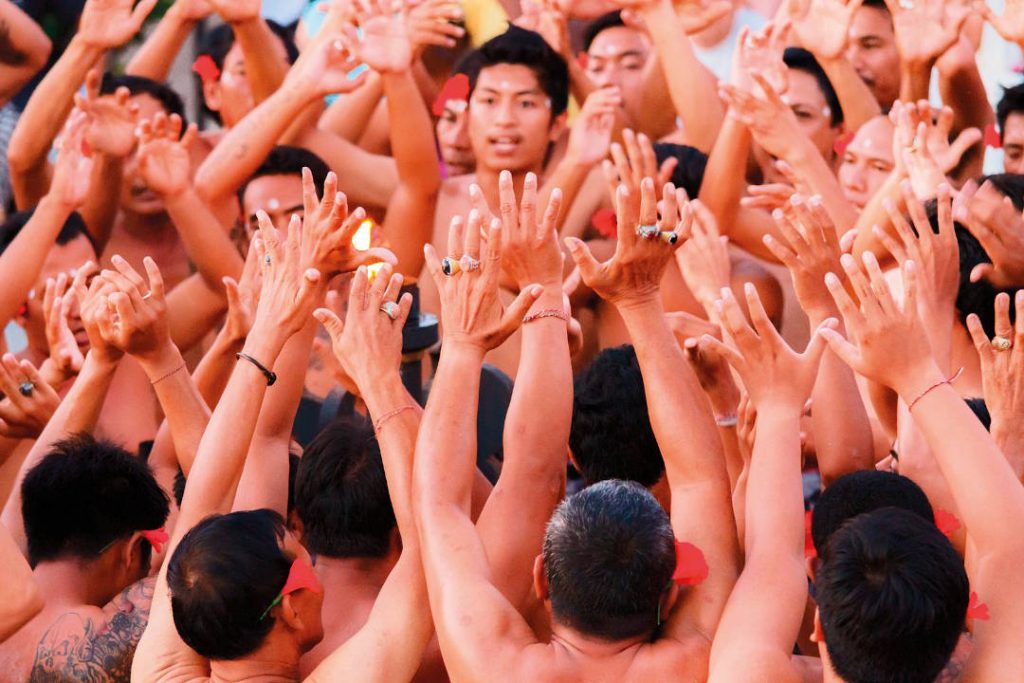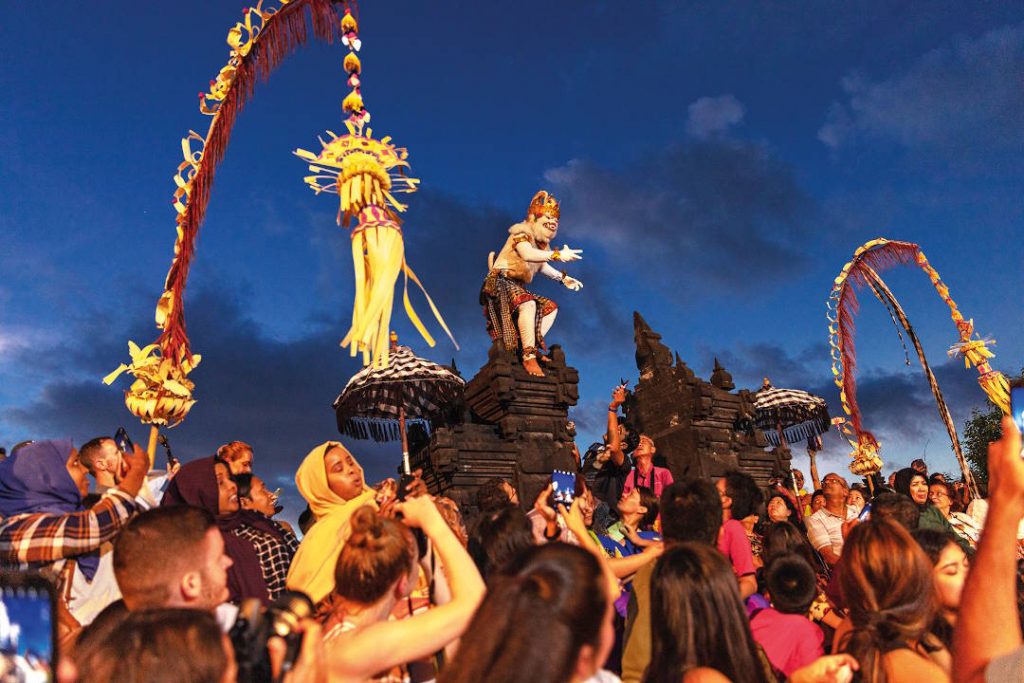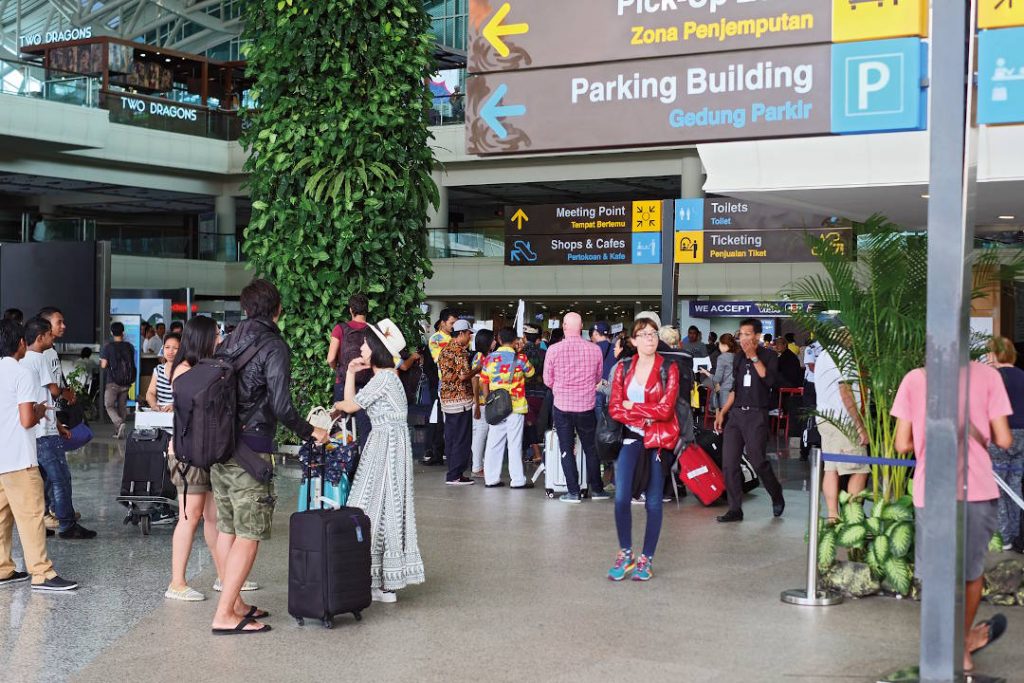Going back to Tri Hita Karana, the Balinese concept for achieving wellbeing, and restoring the island’s taksu or spirit are high on the Bali government’s list for the future tourism of Bali.
The future of tourism on the Island of the Gods is planned to change for the better. Bali is set to lead the way and be a prime example of tourism development while further promoting Tri Hita Karana to achieve Bali as a green, sustainable tourism destination.
The initiative for the 2020 tourism emphasises on quality over quantity. “The president of Indonesia and ministry of tourism have no longer set a target of tourist arrival numbers for Bali. This means we’re headed to change tourism for the better, emphasising more on quality rather than quantity,” said Ir. I Putu Astawa, MMA, acting director of Bali Tourism Agency, adding that the focus is increasing tourists’ spending and length of stay.
The new tourism model means that the future of tourism in Bali will see a transformation of natural exploitation towards green tourism, and destructive development into sustainable development. “The future of tourism in Bali will certainly not be about increasing the number of tourists arrival and reducing prices, but more about shaping the habits of visitors to Bali such as staying longer and exploring more of Bali outside the island’s south,” Astawa added.
Astawa continued, “We want visitors to observe the lifestyle of the Balinese people in unpretentious ways. That’s why in 2020 and the years to come, we’re directing them to rural areas, where everything authentic about Bali awaits; the people, the culture, the nature and the temples.”
Mass tourism has been a regular term used to be describe Bali, making Bali a mix bag of tourism projects, with many investors rushing in and turning acres of the island’s empty lands, forests, and rice fields into hotels. “We have around 146,000 rooms in Bali. In other words we have too many rooms to sell, yet the number of hotel keeps on increasing.”

The issue concerning the increasing number of accommodations in Bali is due to limited power and authorisation of the provincial government over those in the regencies. “The regencies in Bali are autonomous, meaning they make their own decisions. On a provincial level, Denpasar can only advise, including on subjects such as limiting the number of hotels, but the final decisions rest in their hands. So we don’t have authorisation to tell the government of Badung regency what to do, for example,” Astawa explained.
“Out of the thousands of hotels to be found in Bali, quite a big number are actually very good in terms of quality, hospitality, and luxury. These hotels and resorts meet the world standard. On the other hand, we also have plenty of budget accommodations. These accommodations are one of the reasons why we can’t fully stop mass tourism. It will take time; it’s just like a baby. Babies will take time for them to finally be able to walk and run,” said Astawa.
The Bali governor and tourism agency have also set the bill for the new “Standar Penyelenggaraan Pariwisata” or standards on tourism practices and implementations for the future tourism on the island. The bill has been submitted to the Bali house of representatives.
The new standards will regulate everything, such as limiting man-made attractions (with exceptions of providing western standard facilities such as toilets and parking spaces in natural attractions), and human resource development (e.g. only certified personnel can be tour guides). Architecture, too, will be strictly regulated. Commercial buildings such as hotels and resorts are required to include authentic Balinese elements in their designs. In addition to those regulations, we’d also like to foster spiritual tourism, for there are many who come to Bali for spiritual purposes, such as yoga, meditation, healing, and other wellness programmes.

“You may have noticed that signage of buildings, such as hotel names, is now required to also use Balinese letters; airport announcements are delivered in three languages, namely Indonesian, English, and Balinese; and those working in offices are required to wear traditional attire every Thursday. We hope to restore the island’s taksu this way, to revive the spirit of Bali and the feeling of ‘Baliness’,” Sutawa added.

Since re-introducing the ‘real Bali’ is high on the tourism agenda, the number of tourists visiting a temple, especially the very popular ones, will be limited as well. This is aimed at keeping the sacredness of a worshipping site and avoiding any unnecessary disruption to praying devotees.










